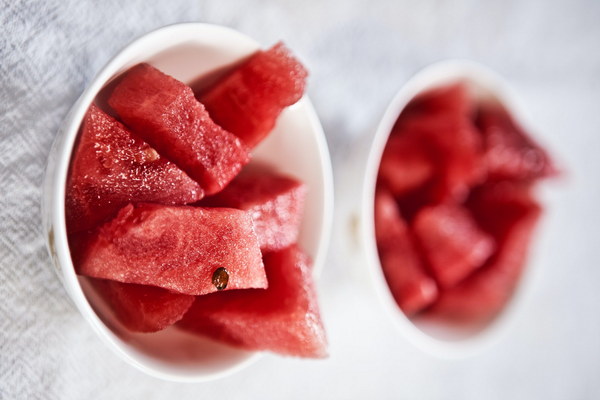Healthy Weight Loss Nurturing Your Body with Mindful Dieting
Introduction:
In today's fast-paced world, losing weight and maintaining a healthy lifestyle has become a common goal for many individuals. While there are numerous weight loss programs and fad diets available, it is crucial to focus on a holistic approach that includes mindful eating and healthy lifestyle choices. This article will discuss how to incorporate healthy eating habits into your daily routine to achieve weight loss in a sustainable and nourishing manner.
1. Importance of Mindful Eating
Mindful eating involves being fully present and attentive while consuming food. It helps in recognizing hunger cues, appreciating the flavors, and making conscious choices about what we eat. Here are a few key points to consider:
a. Pay attention to hunger and fullness cues: Before eating, assess whether you are genuinely hungry or just bored or stressed. Similarly, stop eating when you feel comfortably full, rather than overeating until you feel uncomfortable.
b. Slow down and savor your food: Take the time to chew thoroughly and enjoy the taste and texture of each bite. This not only enhances the dining experience but also helps in better digestion and absorption of nutrients.
c. Limit distractions: Avoid eating in front of screens or while multitasking. This ensures that you are fully present and can appreciate the food and its nutritional benefits.
2. Nutrient-Dense Diet
A nutrient-dense diet is essential for weight loss and overall health. Incorporate the following elements into your meals:
a. Fresh fruits and vegetables: Aim for a variety of colorful fruits and vegetables to ensure a wide range of vitamins, minerals, and antioxidants. They are low in calories and high in fiber, which helps in satiety and weight loss.
b. Lean proteins: Include lean sources of protein such as chicken, turkey, fish, tofu, and legumes. Protein helps in muscle growth and repair, and it also keeps you feeling full longer.
c. Whole grains: Opt for whole grains like brown rice, quinoa, and whole-wheat bread. They provide essential nutrients, fiber, and keep you feeling satisfied.
d. Healthy fats: Incorporate sources of healthy fats such as avocados, nuts, seeds, and olive oil. These fats are beneficial for heart health and can help in reducing appetite.
3. Portion Control
Portion control is crucial in weight loss. Here are a few tips to help you manage your portions:
a. Use smaller plates: This visually tricks your brain into thinking you are eating more than you actually are.
b. Read food labels: Pay attention to serving sizes and adjust your portions accordingly.
c. Eat slowly: It takes approximately 20 minutes for your brain to register that you are full. Eating slowly allows your body to process the signals and prevent overeating.
4. Hydration

Drinking plenty of water is essential for weight loss and overall health. Here are a few tips to increase your water intake:
a. Start your day with a glass of water: This helps to rehydrate your body and kickstart your metabolism.
b. Drink water before meals: It can help reduce your appetite and prevent overeating.
c. Carry a water bottle: Keep a refillable water bottle with you to remind yourself to drink throughout the day.
Conclusion:
Incorporating mindful eating and a nutrient-dense diet into your daily routine is a sustainable and healthy approach to weight loss. By paying attention to hunger cues, choosing nutrient-rich foods, managing portions, and staying hydrated, you can achieve your weight loss goals while nurturing your body and mind. Remember, sustainable weight loss is not a quick fix but a lifestyle change that promotes long-term health and well-being.









